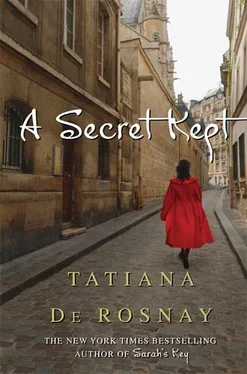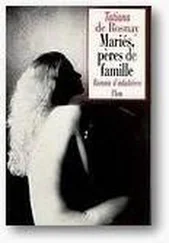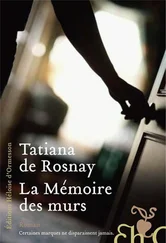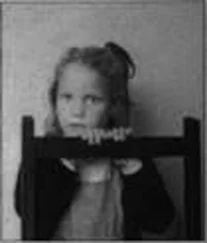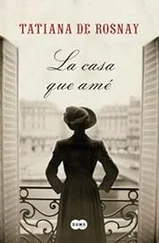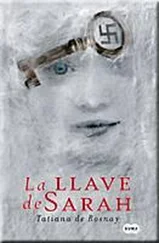I stop. Something too close to my heart hurts. I cannot speak. The words don’t come.
“Sorry,” mumbles Arno. “We’ll talk about it another day. No prob, Dad.”
He stretches his long legs and pats my back affectionately. He seems embarrassed by my emotion and doesn’t know how to deal with it.
The tall woman in the blue uniform I noticed earlier walks past us again and smiles once more. Pretty legs. Pretty smile. I smile back at her.
Arno’s mobile phone goes off, and he heaves up to answer it. He lowers his voice and moves away from me. I can’t make out what he is saying. I have no inkling whatsoever about my son’s intimate life. He rarely brings friends home, except a goth-type girl with dyed black hair and purple lips that disturb me, giving her a drowned Ophelia-like look. They sit around his room and listen to music full blast. I don’t like questioning him. Once, my seemingly cheerful interrogations were greeted with an icy “Are you from the Gestapo, or what?” Since then, I keep my mouth shut. I remember hating my father prying when I was Arno’s age. Except I would never have dared answer him that way.
I light a cigarette and get up to take a few steps. I keep thinking about what I should do now, how to organize things around Mélanie’s hospital stay. What to start with.
I feel a presence next to me, and when I turn, I see it is the tall woman in the pale blue uniform.
“Could I have a cigarette?”?’
My hands fumble as I offer her my packet. Another fumble with the unwilling lighter.
“Do you work here?”
She has interesting gold eyes. Early forties, but I’m bad at guessing ages. She could be younger. All I know is that she’s nice to look at.
“Yes,” she says.
We stand there, a little self-conscious. I look down at her badge. ANGÈLE ROUVATIER.
“Are you a doctor?” I ask.
She smiles. “No, not exactly.”
Before I can ask another question, she says, “Is that young man your son?”
“Yes. We are here because-”
“I know why you are here,” she says. “This is a small hospital.”
Her voice is low, friendly. But there is something strange about her, something slightly aloof. I can’t quite pinpoint it.
“Your sister was lucky. That was a bad crash. You were lucky too.”
“Yes,” I say. “Very lucky.”
We puff away in silence.
“So you work with Dr. Besson?” I ask.
“She’s the boss.”
I nod. I notice she wears no wedding band. That’s the kind of thing I notice now. I never used to, before.
“I have to go. Thanks for the cigarette.”
She takes off. I admire her long, slim calves. I can’t even remember the last woman I had sex with. Probably some girl I met on the Internet. Some dismal fling that lasted a couple of hours. A used condom, a hurried goodbye, and that was it.
The only nice girl I had met since my divorce was a married one. Hélène. One of her daughters was in Margaux’s art class. But she wasn’t interested in having an affair. She only wanted to be friends. That was fine with me. She became a close and precious ally. She would take me out to dinner at some noisy brasserie in the Latin Quarter and hold my hand and listen to me mope. Her husband didn’t seem to mind. Not that I’d make any husband jealous. Hélène lives on boulevard de Sébastopol in a rambling apartment she inherited from her grandfather and did up with great audacity. Her building has a crumbling old façade in an area squashed between the Halles and the Pompidou Centre, two symbols of overt presidential vanity. Going to visit Hélène never ceases to bring back pangs of my childhood, when my father and I roamed through the odorous market stalls that no longer exist. He was fond of getting me out of the sixteenth arrondissement and showing me the vieux Paris and its Zola-like reminiscences. I remember ogling the garishly dressed hookers lined up and down the rue Saint-Denis until my father sternly told me to stop.
I watch Astrid and Margaux come back from the hotel, refreshed after their shower. Astrid’s face has smoothed out; she seems less tired. She is holding Margaux’s hand and swinging it the way she did when Margaux was a little girl.
I know it will soon be time for them to leave. I know I need to get ready for that moment. It always takes me a while.

At the end of the day Mélanie’s face seems a little pinker against the white pillow-or perhaps it is my hopeful imagination. Our families have left, and we are alone now in the slowly abating August heat, with the whirring noise of the fan in our ears. This afternoon I called her boss, Thierry Drancourt, her assistant, Lucie, her close friends, Valérie, Agnès, Victor. I tried to explain the situation in the best way possible, with the smoothest, most reassuring voice-accident, broken back, hospital, rest, will be okay-but they had all sounded worried. Could they send something, could they be of any help, was she suffering? I briefly calmed them down with a confident tone. She was going to be fine, just fine. On Mel’s phone, which I had gotten hold of, I found a couple of messages from the old beau, but I did not call him back.
Then, in the privacy of the men’s toilets down the hall, I phoned my own close friends, Hélène, Didier, and Emmanuel, and told them with a very different, trembling voice how afraid I had been, how afraid I still was, looking at her lying there in her cast, motionless, a dead look in her eyes. Hélène sounded tearful, and Didier could hardly speak. Only Emmanuel managed to comfort me with his deafening baritone voice and warm chuckle. He offered to come down to be with me, and I toyed with the idea for a while.
“I don’t think I want to drive ever again,” Mélanie says feebly.
“Forget it. It’s too early, anyway.”
She shrugs, or tries to, and winces. “The kids have grown. Lucas is a young man. Margaux with her orange hair. Arno and his goatee.” She stretches her parched lips and smiles. “And Astrid…” she says.
“Yeah”… I sigh. “And Astrid.”
She slowly reaches out and takes my hand. She squeezes it. “Whatshisname didn’t show up, huh?”
“Thank God.”
The doctor comes in with a nurse for the evening checkup, and I leave the room after having kissed my sister goodbye. I walk up and down the corridors, the rubbery soles of my tennis shoes making squeaky noises. As I head out to the main entrance, I see her again, just outside.
Angèle Rouvatier. She is wearing black jeans and a sleeveless black T-shirt. She is sitting astride a magnificent vintage black Harley-Davidson, helmet tucked under one arm. With the other hand she is holding a phone to her ear. Her brown hair falls against her face, and I cannot make out her expression. I stand there and watch her for a while, my eyes running down the slim length of her thighs, down the tapered back, along the round, feminine shoulders. Her forearms are tanned; she must have spent some time in the sun recently. I wonder what she looks like in a bathing suit. I wonder what her life is, whether she is married, single, a mother, childless. I wonder what she smells like, just there, under the glossy curtain of hair. She must have sensed something because she whips around and sees me checking her out. I step back fast, my heart thumping with discomfiture. She smiles at me, pockets her phone, and makes a little gesture with her finger: come here. I plod toward her, feeling idiotic.
“How is your sister this evening?” she asks.
Her eyes are gold, even in this light.
“She seems better,” I mumble. “Thank you.”
“You have a beautiful family. Your wife and daughter and son.”
“Thank you.”
Читать дальше
